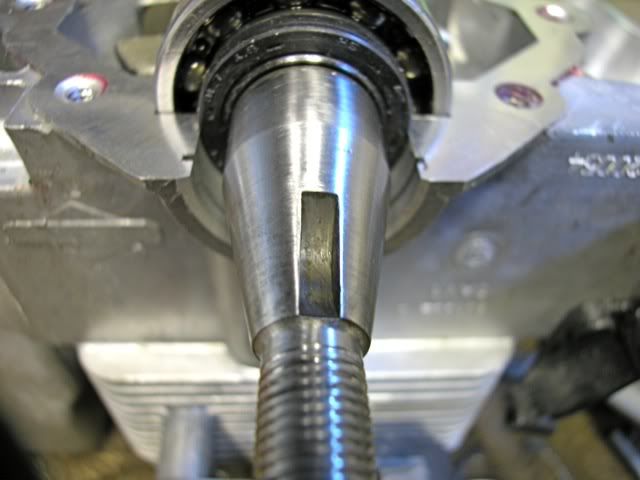Well I got the bolt stud welded, new old flywheel on, air gap set, good spark. Put everything else back on the engine.
Still don't have the gov. vane so I just used the spring to keep the throttle at the idle position and used the idle screw
to bump up the idle up a little. Put the engine back in the housing and it start on the third pull.
Was idling and running well, then I heard a knock, couple seconds later heard another one then another one.
So I shut it down. Was one of those sounds you know isn't good, kind of a deep sounding clank.
It only made the sound maybe 3-4 times in about 20 maybe 30 seconds or run time.
Pull the engine back out and decided to take it apart to check the rod cap.
When I took the flywheel back off found that the new key I put in was sheared.
( could have had something to do with the knock)
Was really clean inside.
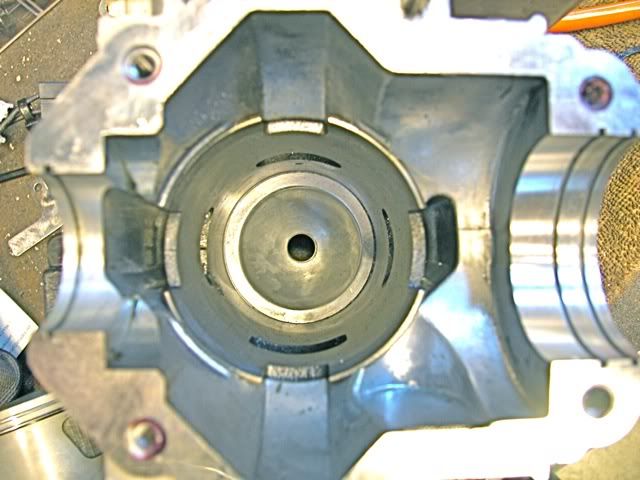
Intake port I believe
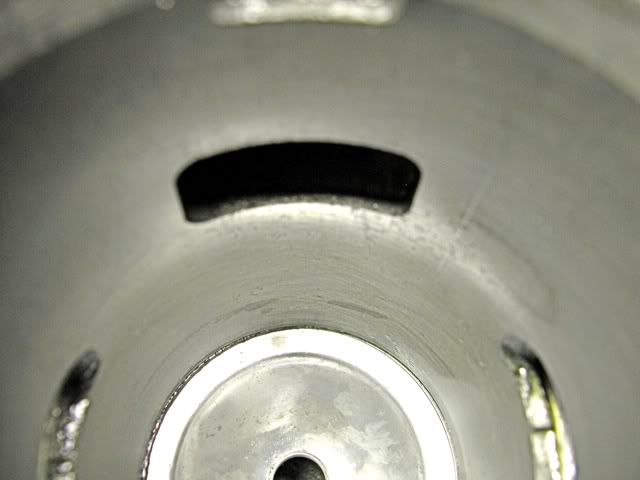
Exhaust port. The two ports on the side run down into the crankcase. Which is up in the photo.
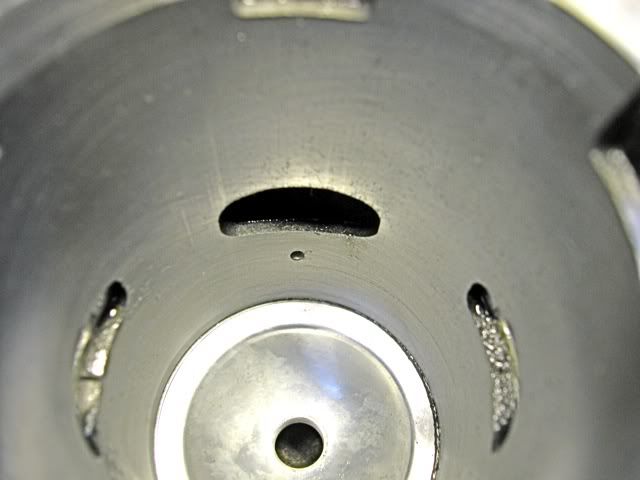
Rod end on crank. You can see the roller bearings
Rod cap was tight.
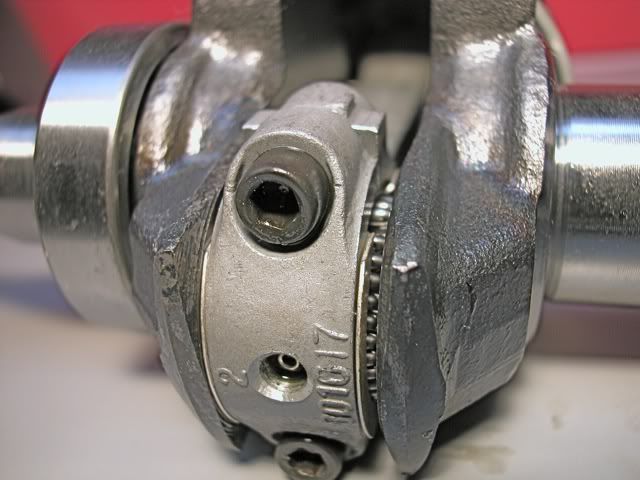
Roller bearings in the cap. Most of them stayed in place when I lifted it off.
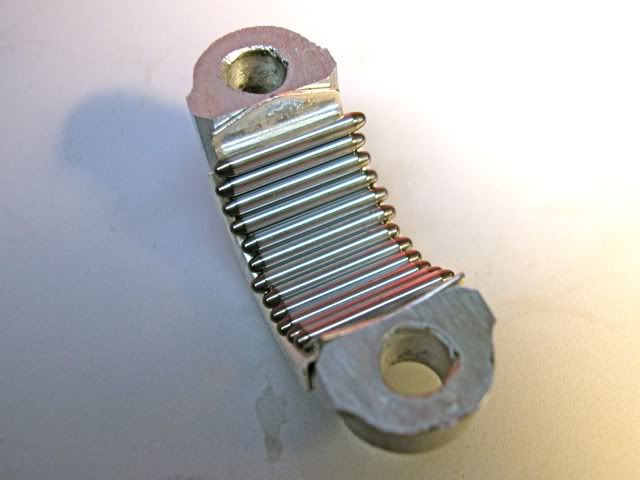
I decided to put in the old crank I had from another R-Tek. Same part numbers.
I put a few drops of oil on the crank journal so the bearings would stay in place.
There is enough space for one more bearing, but that's all that came out.
I guess once they all get spaced that's the way it should be.
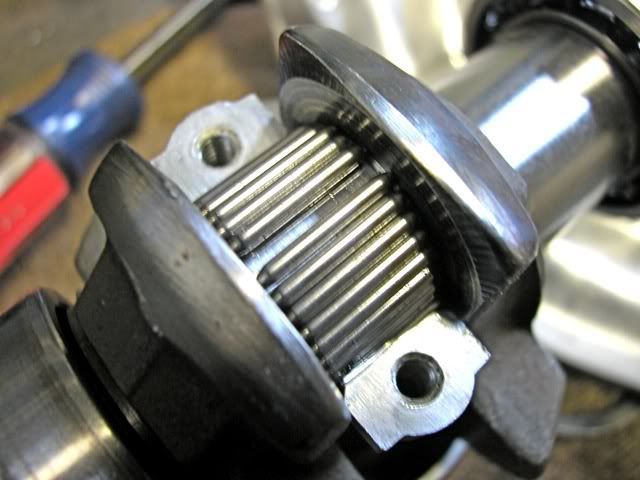
A few photos of the difference between the two cranks. Same part numbers.
Top one is the older one out of a CCR2400
The ends of the counter weights are clipped off on the newer crank. (bottom photo)
and the casting itself is a lot rougher.
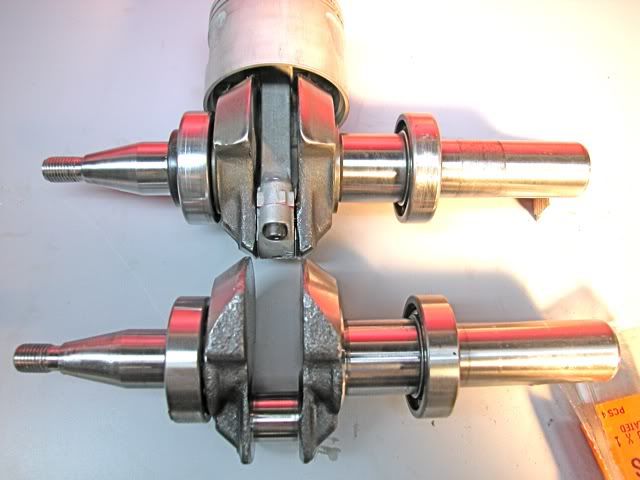
New crank on the left. If I remember to I'd like to weight them both.
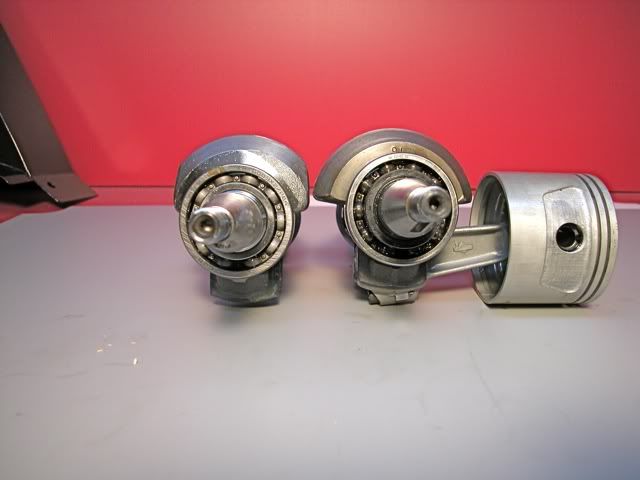
Just for comparison. Honda 11Hp crank on top.
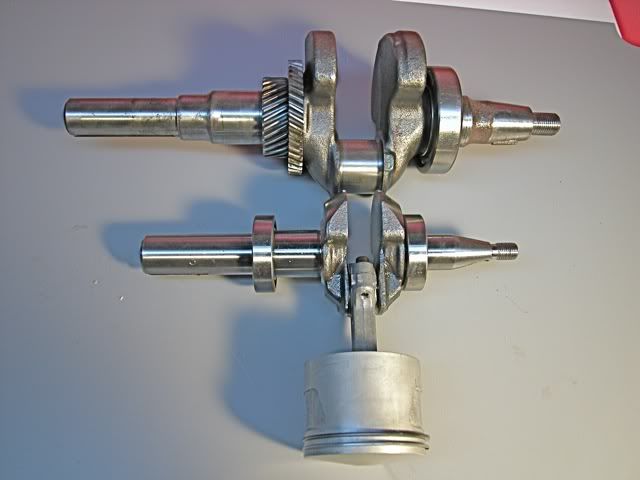
Key way slot on the replacement crank.
Things were going well until I cracked a ring. Hate when that happens. There is an alignment pin in the
piston ring groove for both rings. It keeps the end gap space of both of them aligned right above each other. Which normally you don't do.
Unfortunately I didn't see the pins at first, pushed on the ring when it was on top of the pin not aligned in the end gap and.... snap.
